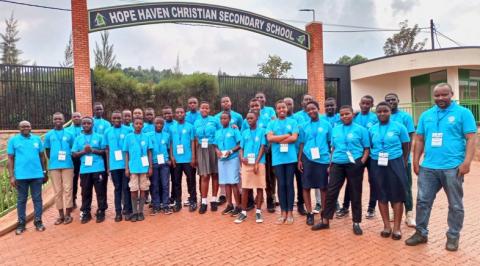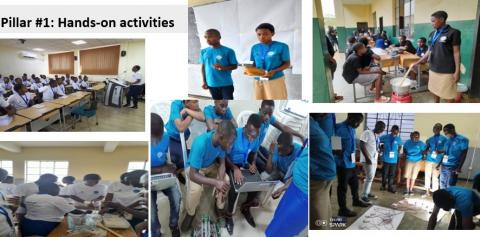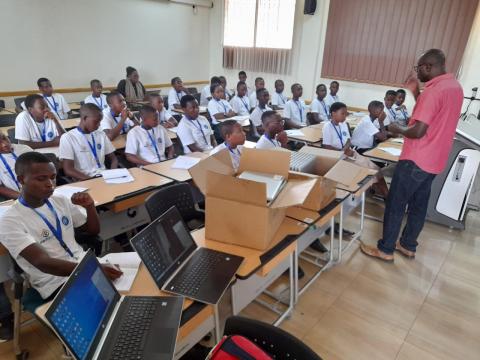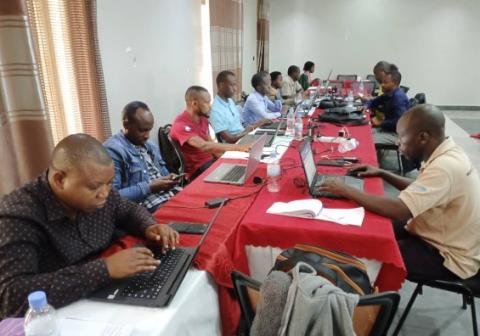Through the Rwanda Quality Basic Education Human Capital Development (RQBEHCD), Sub-component 1.2, the University of Rwanda-College of Education (UR-CE developed 15 modules on the Project-Based Learning approach, and an initial cohort of 256 teachers were trained. Following the agreement signed on 31st March 2023 between UR and the Commonwealth of Learning (COL) to develop 5 STEM modules as Open Education resources to be used in support of the Online training of teachers through CPD-ITMS and Maths and Science for Sub-Saharan Africa (MS4SSA) project, UR-CE academic staff endeavored to develop STEM Open Educational Resources (OERs) on STEM Project-Based Learning (PBL) approach.
The development of the Open Educational Resources on Project-Based Learning (PBL)approach is expected to allow users to access the developed materials easily (anytime anywhere) to reuse them without asking permission and materials will be enhanced by incorporating texts, images, videos so that they can support different approaches of learning.
Is this shift necessary? As we know, the 4th Industrial Revolution presents many opportunities for the innovation and development of new technologies related to improved automation, connectivity, smart cars, the Internet of Things, alternative energy solutions, cognitive computing, and cyber-physical systems. This creates a demand for expertise in growing fields that are promoting industries. The future of work and the skills needed for future workers are changing rapidly. This new landscape necessitates a greater focus on STEM education for all students starting at younger ages.
Therefore, there is a need to change how STEM courses are taught and shift where necessary to a Project-Based Learning approach where learners learn by actively engaging in real-world and personally meaningful projects to improve existing teaching practices.
In this framework, it is expected that besides these teachers trained online or through the Community of Practice in their schools, these modules will be put online so that they can be accessed by many teachers in the country or the framework of the MS4SSA project.
Open Educational Resources (OER) are any type of educational materials that are either in the public domain or published under open licenses (e.g. Creative Commons) that specify how materials can be used, reused, adapted, shared, and modified according to specific needs.
Story by
NTIRANDEKURA Schadrac
PRO, UR-CE



